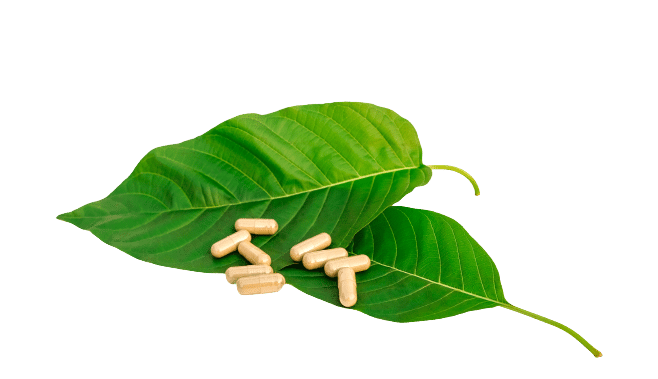What Does the KCPA Do?
The KCPA provides consumers and kratom users across the United States reassurance when buying natural kratom products. The law sets guidelines on kratom’s manufacturing, distribution, sale, possession, age limits, fines, and testing and labeling requirements.
The KCPA ensures that vendors supply only premium products that do not contain anything potentially harmful or hazardous.
Typically, states develop tweaked versions of the KCPA’s text, as they are allowed to create an act that caters to their state’s needs.
The following is some of the standard text in the Kratom Consumer Protection Act:
- Prohibits the sale of kratom to minors, ages 18+ only
- Disclosing if any food items contain kratom
- Banning the sale of adulterated or contaminated kratom products
- Disallowing kratom products that are packed with or contain harmful substances that alter the strength or quality of the kratom in a way that could harm or injure the customer
- Prohibiting kratom products that may be mixed or packed with substances scheduled in the respective state
- Forbidding the sale of kratom products containing more than 2% of 7-hydroxymitragynine
- Prohibiting the sale of any products that contain synthetic kratom alkaloids or a synthetic version of any other natural compounds found in kratom
- Labeling kratom products and stating the ingredients and origin of kratom
- Disclosing the amount of mitragynine and 7-hydroxymitragynine that each product contains
The KCPA is designed to keep consumers safe and healthy while holding vendors accountable. If businesses choose not to comply with the KCPA regulations, they face hefty fines and possibly even criminal charges.
If your state passes the Kratom Consumer Protection Act, it will likely have a modified version of the KCPA. Vendors and consumers must know what those state guidelines and laws are so that individuals can shop smart and businesses can avoid getting shut down.

Which States Have Passed the KCPA?
Currently, four states have passed the KCPA. They include:
Contributing to the AKA is pivotal in getting more states on board. In addition, consumers need to do their part by participating in government hearings if they want to see this natural remedy become more widely accepted. The industry needs help, and if enough people are willing to donate their time to help bolster the argument that kratom should be made legal, significant progress could occur.
Elected officials can’t prevent the people from showing up and talking, so if kratom is an integral part of your life, consider contributing your time. Once lawmakers see the positive impact kratom has on individuals across the map, the more likely they’ll be willing to rally behind this cause as well. The voices of the kratom community are essential to passing the Kratom Consumer Protection Act in more states across the U.S.
Related: Is Kratom Legal? A Global Analysis

Why Doesn’t the FDA Regulate Kratom?
Typically, the FDA would be responsible for overseeing the kratom industry. However, that is currently not the case. The Food and Drug Administration states:
“There are no FDA-approved uses for kratom, and the agency has received concerning reports about the safety of kratom. FDA is actively evaluating all available scientific information on this issue and continues to warn consumers not to use any products labeled as containing the botanical substance kratom or its psychoactive compounds, mitragynine and 7-hydroxymitragynine. FDA encourages more research to understand better kratom’s safety profile, including the use of kratom combined with other drugs.”
Until the FDA chooses to perform this duty of overseeing this industry, the KCPA will remain a vital piece of legislation serving the kratom industry. Although the FDA still feels kratom is particularly risky, others question whether it may be due to its threat to the pharmaceutical giants.
The Food and Drug Administration has considered putting restrictions on the herbal remedy before but has faced high resistance and has been unable to follow through with banning kratom. However, this is not to say they will not continue pushing this suggested ban on this beneficial plant.
In 2021, the World Health Organization reviewed kratom and determined that it is safe and poses little risk to the public. This decision could heavily influence the FDA and other government agencies worldwide.
Related: Is Kratom Dangerous?
The American Kratom Association & the KCPA
The American Kratom Association (AKA) is a non-profit organization founded because of the lack of regulation and fear surrounding kratom. Their main goals are to keep kratom legal and to provide accurate information about it.
Most places have no laws governing the processing or selling of kratom, putting unsuspecting users at risk. Now, this is less of a problem, thanks in part to the AKA, because trustworthy vendors go out of their way to prove their legitimacy. AKA-certification and third-party testing demonstrate the quality and potency of kratom products — you have to know what to look for.
The AKA supports the KCPA and fights for kratom to remain legal everywhere. Until kratom is regulated, the AKA does the job of the FDA and loosely oversees the kratom market.

Tips for Buying Safe Kratom
Since kratom is primarily unregulated, users need to do a little homework to stay safe. Fortunately, this is pretty straightforward now — vendors recognize the predicament and try to make it easy for their customers.
If you’re looking for kratom, use these tips to find the safest and purest kratom without the help of the law.
1. Look for Third-Party Tests
Any company worth buying from will provide test results proving their kratom has been tested by a third party. Often these tests look for contaminants, heavy metals, and microbials and check alkaloid content.
2. Buy From AKA-Certified Companies
If you see the AKA’s GMP seal, the company has gone through extensive measures, and you’re guaranteed remarkable kratom.
3. Read Customer Reviews
Usually, the first two steps weed out the bad, but it never hurts to read customer reviews. Now and then, a company can check all the boxes and still end up with poor reviews; maybe the customer service is lousy or shipping times lag. See what previous customers say before leaping.
4. Buy Online
This seems counterproductive to many people — online is often seen as being more expensive and less desirable. This could not be further from the truth, at least when it comes to kratom.
Local stores rarely have any proof of testing, the products aren’t as fresh, and they’ll cost far more. Check out the best online vendors — the selection alone is worth it.

Conclusion: The KCPA & Safe Kratom
The Kratom Consumer Protection Act is one way to protect consumers. As long as the FDA continues resisting, that responsibility belongs to the individuals and the KCPA.
We must find a way to have more families and communities speaking out about the positive effects of kratom on their lives.
Without the KCPA, kratom is heavily unregulated, and vendors can do as they please with little or no consequences. Consumers are gambling if they want to use these products without taking specific measures.
Regulating kratom, ensuring the safety of consumers, and setting guidelines for vendors to follow are all-around positive and beneficial for the industry.
Until then, only buy from reputable vendors that uphold the strict guidelines of the AKA.









